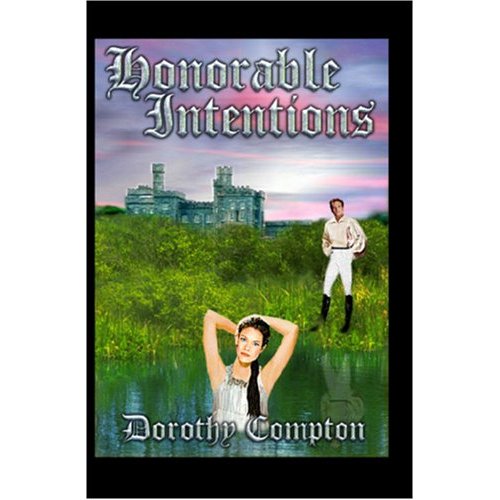

Victoria's mother is very ill for many years. Shortly after she dies, Victoria herself becomes ill and remains so until after her marriage to Jonathon. In spite of her illness, Victoria involves herself in charities such as rescuing child chimney sweepers. While her marriage is an arranged one, the moment she meets Jonathon, she feels things she had never known before.
Jonathon enters into this arranged marriage due to financial problems. When his brother was in charge of the Burlingale estate, he gambled away the family money and was killed because of a bad bet. Following his death, Jonathon is forced to leave medical school and take up the title of Marquess of Burlingale. He also inherits all the family debts. And so, he marries Victoria, who forces her father to supply him with a very large dowry. It isn't until after they are wed that he realizes she is quiet wealthy herself. Because she is ill, he swears never to press unwanted attention on her person.
Jonathon believes that the reason Victoria has remained ill for so long is the narcotic her nurse has been giving her. He advises her to quit taking it slowly and she does, finally regaining her health. When she offers to help with the account books, Jonathon becomes upset with her meddling in "men's affairs" and trying to restore the family home. After a while, she becomes fed up and decides to return to London to make her social debut, leaving Jonathon completely alone with an estate that is practically falling down around him.
The obstacles Victoria and Jonathon have to overcome in their relationship seem typical and generally unimaginative. The two potential villains, the nurse who continues to dose Victoria with laudanum and the lecherous young lord Victoria meets while partying in London, are weak and disappear with just Jonathon's say-so, which makes the reader wonder where the conflict truly lies.
The greatest conflict comes from Victoria's willingness to pay for the reconstruction of the house and Jonathon's inflexible attitude about her money and his duty. Nothing threatens to tear them apart except for Jonathon's mind-set and Victoria's newfound freedom from her illness -- something a simple conversation between adults would have easily solved.
The dialogue is rigid, not a single contraction uttered by any character who is educated. While it may be considered typical of the period, it becomes rather frustrating over time.
The historical period is described in great detail but only in terms with which the reader must already be familiar. If one cannot readily visualize them, the reader will be lost. While "Honorable Intentions" opens with much potential, the lack of conflict is ultimately disappointing.
--J. Anne Mauck-- Inscriptions Magazine
Inscriptions Magazine (Vol. 4 Issue 49)
ISSN: 1522-3728